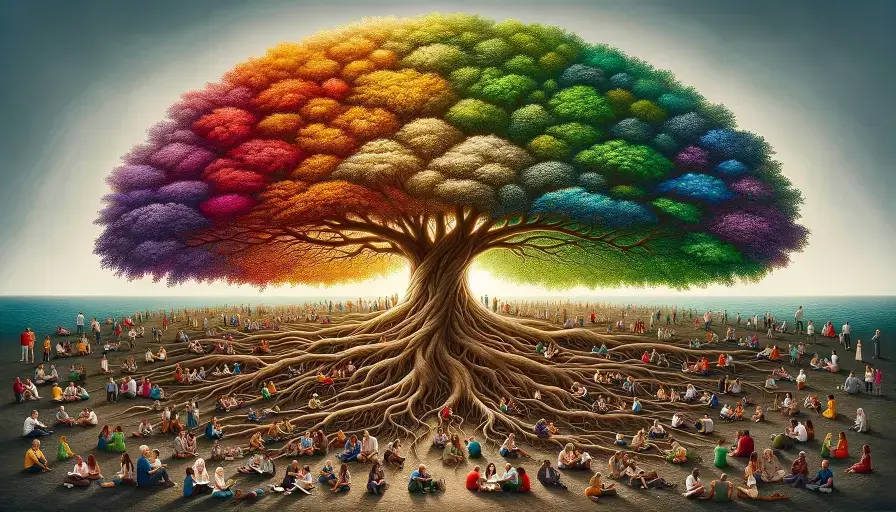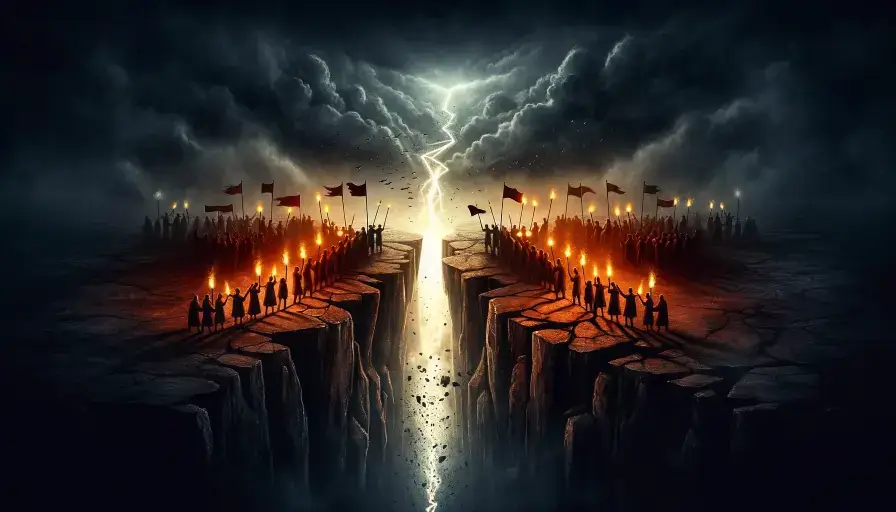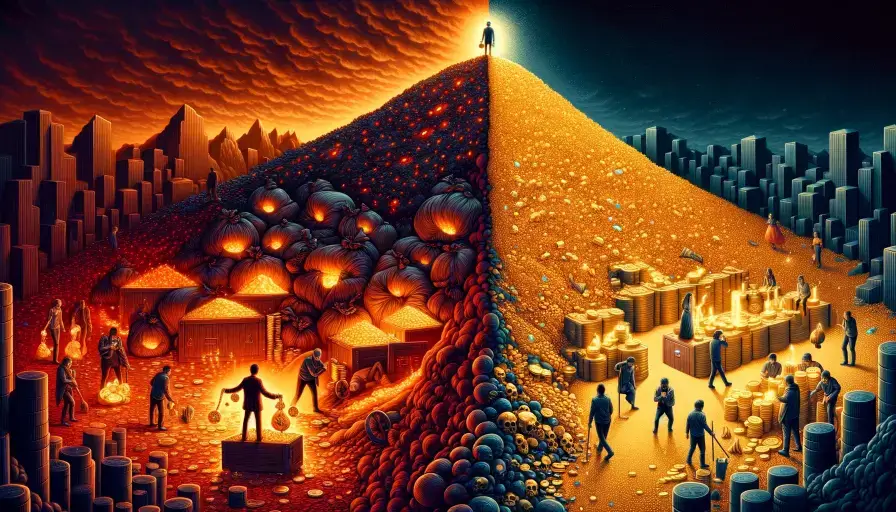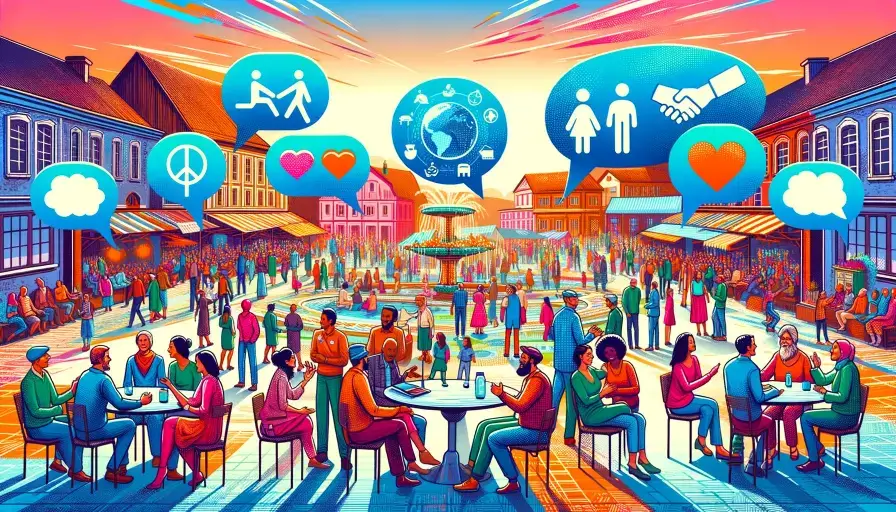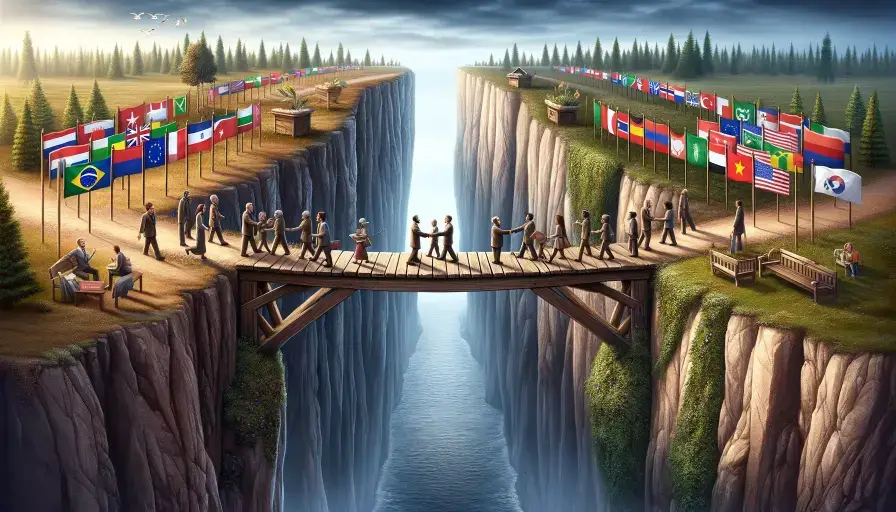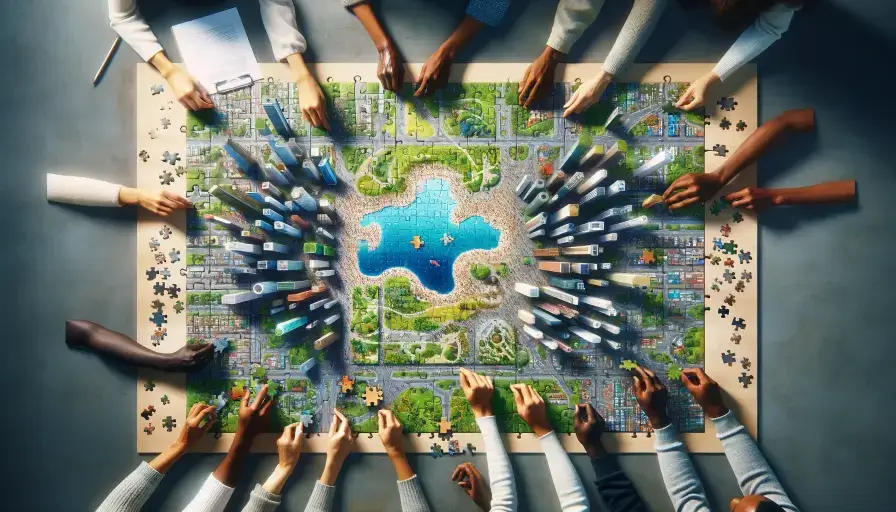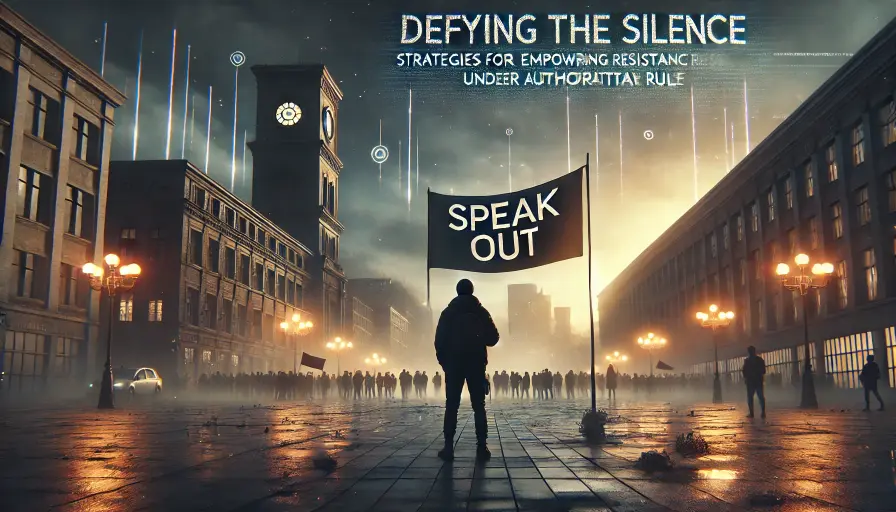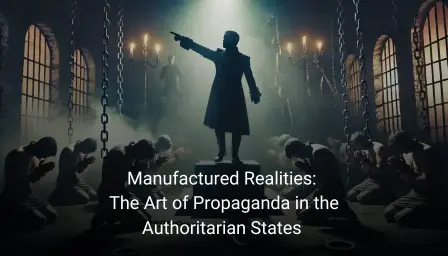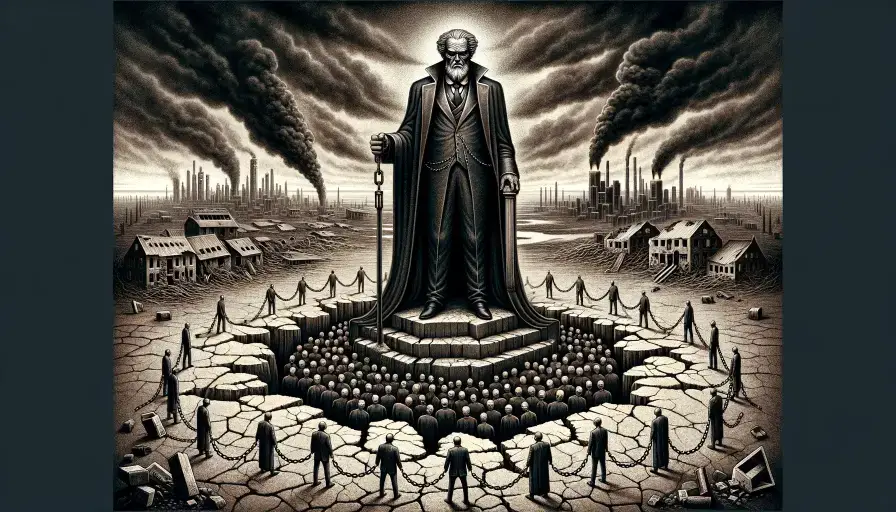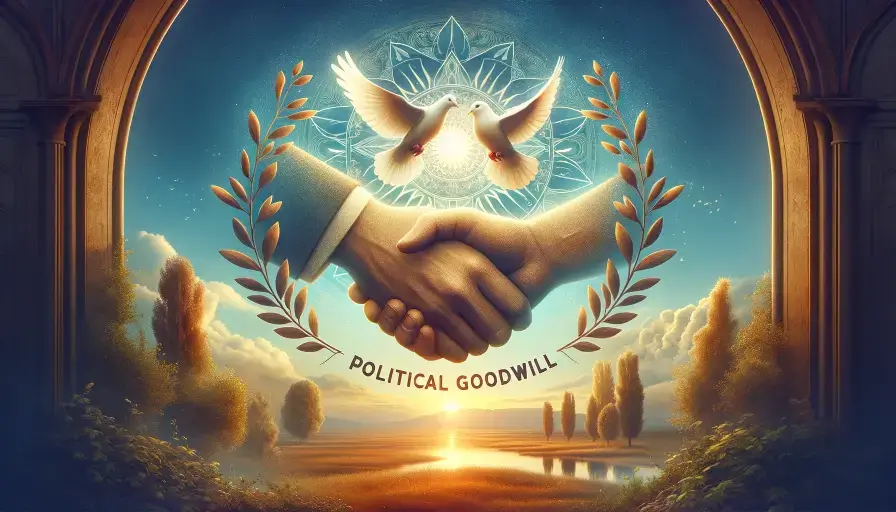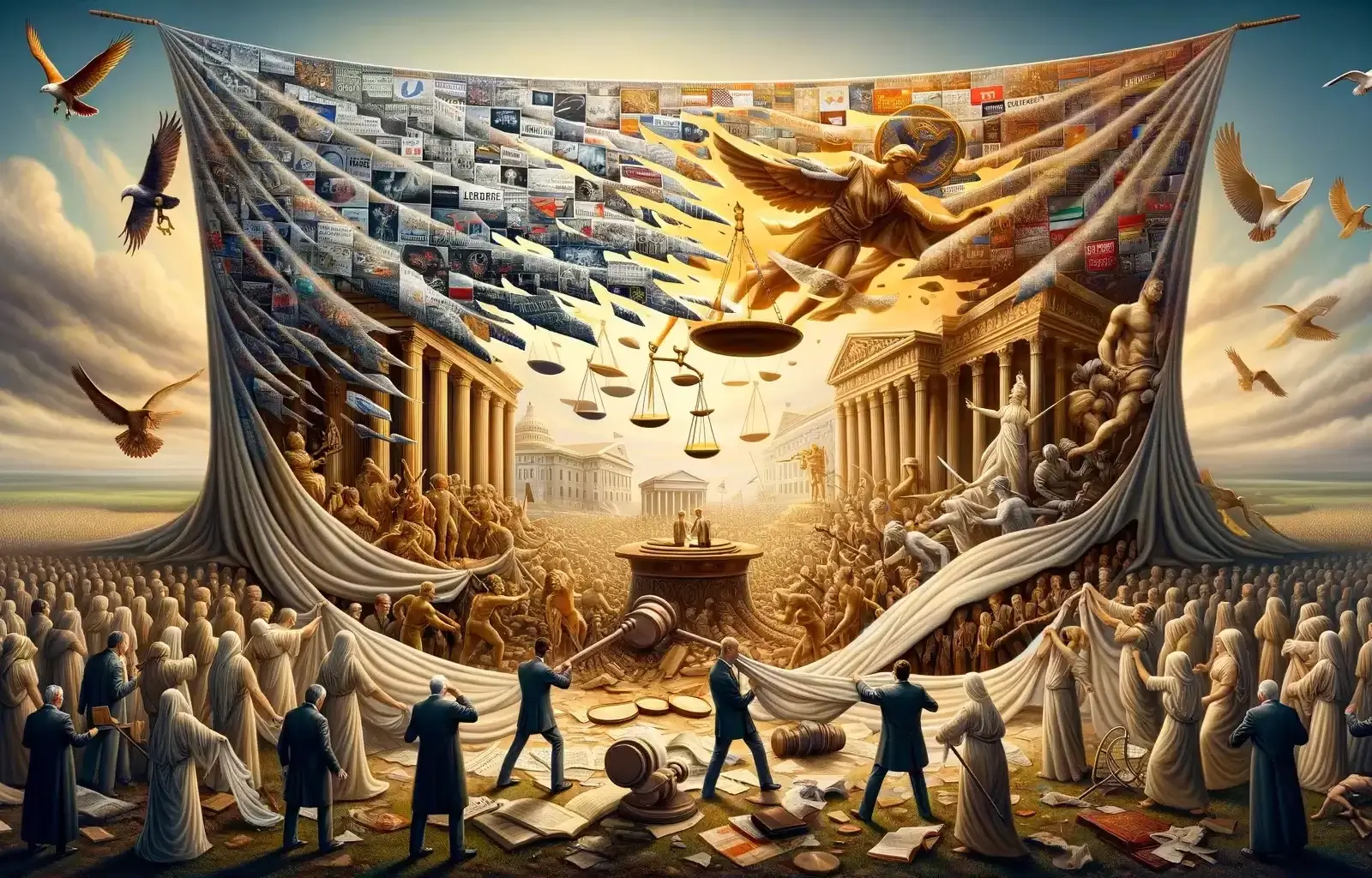In a society that is becoming more divided, appeals to loyalty to one’s tribe and foolishness are gaining popularity at the expense of promoting being a citizen. As globalization speeds up the process of connecting different parts of the world, the presence of tribal mentalities leads to increased conflict.
Given the circumstances, it becomes increasingly important to be a conscientious and involved member of society dedicated to the community’s well-being. This is essential for successfully addressing intricate problems and promoting more vital social unity.
Technology fragments shared understanding of truth and fans’ ideological extremes. At this pivotal juncture of history, citizens worldwide must overcome divisive politics advanced by those seeking power over social cohesion.
The Perils of Modern Tribalism
Tribalism refers to excessive loyalty towards one’s perceived social/political group and treating outsiders as threats. As Amy Chua defines it:
Tribalism is the sense of belonging to one group, with its interests, values, customs, and culture, combined with an instinct to defend that group passionately against others.
Tribalism in politics fosters a mindset of “us vs. them” and undermines the diversity, compassion, and rationality that are essential for the success of democracies.
As a citizen today, it is unfortunate and quite distressing to delve into a discussion of idiots and tribalism, considering the strides we have made towards global development. We witness these elements are alive and well, and it is a sad reality in our world today. Even more accurate is the misery and division they bring in their wake.
We are forced to face this reality. Presenting and discussing the ” be a citizen” idea is apt but timely. If we are honest, today’s society is populated with people whose loyalty to their tribe or political tribalism overrides their sense of citizenship. For this reason, this discourse could not come at a better time.
Returning to history, we learn that ancient sociologists classified the populace in society into three categories. This threefold distinction, first mentioned by the founders of democracy in Ancient Greece, highlights the transition from tribal societies to organized states. They identified the three types of people: the idiots, the tribalists, and the citizens.
THE IDIOTS:
The Greeks, who, in many ways, contributed to the modern civilized world, classed the first kind of people as idiots. The Greeks identified the idiots as not being mentally deficient but very private, self-centered, and selfish people.
The idiots are always looking out for their gain and self-interest. The lack of public philosophy, knowledge, and skill is evident to this class of people, highlighting a divide that political parties often exploit. Idiots do not have the virtue and the character to make a meaningful contribution towards the flourishing of society and community.
For the idiots, it is all about their pleasures and treasures, often ignoring the solidarity that could foster community strength. According to the Greeks, the idiots were no more than upgraded barbarians.
As in ancient Greece, we have the same idiots or barbarians in this modern era. They are a class whose primary goal is maximizing personal gain by cutting corners at every turn and overlooking ethical issues. They embezzle the national treasury in the name of development as long as it helps their bottom line.
MODERN-DAY IDIOTS:
If idiots assume positions of power and leadership, they do not work for the common good of society but instead use their power and the people’s wealth for their benefit.
The idiots pretend to advocate for the people’s cause, but in reality, they advance their selfish interests. They operate and are motivated by greed and a selfish mentality, starkly contrasting the principles of solidarity and communal welfare found in tribal societies.
In all their business dealings, whatever the scale of operation, whether big or small, they always try to evade tax by working with corrupt public officials.
They conspire to bleed, dry the nation, and make the people destitute. Their sole intent is to amass personal wealth, even if that often means rent-seeking and bending the law. They have no qualms about bribing public officials to disregard their destructive activities.
As the ancient Roman adage goes: “Money is like seawater.” The more one drinks, the thirstier he becomes.” This proverb finds particular meaning with today’s brand of idiots, particularly those in positions of power.
We have leaders who unsparingly plunder and embezzle the nation’s wealth. They start small and quickly become brazen as they recklessly rob the people on a massive scale.
The Dimensions of Modern Idiocy
If tribalism blinds followers to flaws within their ranks, idiocy constitutes an utter lack of public-spirited knowledge or virtues. As Plato wrote in The Republic:
“Idiocy…is the worst disease for a city. For the person with this disease does the most harm to himself and the state.”
Idiocy signifies selfishness and greed, eclipsing civic duty. Let us analyze modern strains of idiocy undermining societies.
The Idiocy of Avarice
Politicians supposed to serve citizens often exploit power for material self-enrichment, betraying public trust through bribery, embezzlement, and regulatory capture. Their idiocy of avarice bleeds state treasuries dry, enriching the powerful few at the expense of impoverishing vulnerable majorities.
Rarely facing the consequences of kneeling institutions, these corrupt officials erode ethical standards and budgets for healthcare, education, and infrastructure.
Multinational corporations also frequently display the idiocy of greed: dodging fair tax obligations, illegally dumping toxic waste to maximize profits, and influencing policymakers through illicit lobbying/funding. Rewarding such corporate misconduct only further entrenches these destructive behaviors systemically.
Ultimately, environments that enable the idiocy of insatiable personal enrichment sabotage economies erode justice and moral character, and destroy public trust.
The Idiocy of Hatred
Sadly, many politicians peddle prejudice towards minority groups to galvanize tribal voters. Employing fearmongering tropes and scapegoating vulnerable communities, these cynical demagogues exacerbate societal divides to consolidate power.
Their rhetoric fans bigoted violence against marginalized groups. When elected, their oppressive policies institutionalize cruelty and injustice, targeting demonized peoples.
Such political idiocy of hostility corrodes communities, tramples dignity, encourages vigilantism, and breeds cycles of extremism, ultimately threatening everyone’s safety. It represents an ethical nadir of leadership guaranteed to tear pluralist societies apart and a significant hindrance to being a citizen.
Only systemic reforms protecting minority rights coupled with truth and reconciliation initiatives can heal these schemed ruptures over generations.
The Idiocy of Denial
Willful ignorance constitutes another modern idiocy corroding societies worldwide. As anti-intellectual populist movements gain influence globally, disinformation and conspiracy theories increasingly shape public opinion and policy.
When partisan tribalism forges polarized separate realities, evidence-based decision-making and honest debate become impossible.
From climate change denial to COVID conspiracy theories, the mass idiocy of reality defiance now threatens existential public interests.
False information is disseminated via tribal media ecosystems, and enormous portions of the populace reject scientific consensus and support assertions that contradict fundamental facts and logic. Thereby, they sabotage pragmatic solutions to complex global challenges.
Ultimately, the endemic idiocy of denial, left unchecked, can devolve into terminal societal dysfunction. Reasserting institutions of truth, accountability, and reason represent civilization’s only hope.
THE TRIBALIST
According to the Greeks’ classification of people, the second kind of people in any given society is the tribal people. This tag does not reference belonging to a particular tribe or nationality.
Belonging to a specific tribe is a natural thing to be proud of and good. However, tribal people, in this particular context, refer to a tribalist mentality, which often leads to tribal conflict and undermines the potential for a truly tribal society.
The Greeks identified the tribalists as people who could not think beyond their small tribe or group. For the tribespeople, their primary and ultimate allegiance is to their tribe. Their tribe is their God, and their religion is tribalism.
They are bound to their local area and very narrow-minded, lacking the broad-minded solidarity needed for a truly tribal society.
According to the ancient Greeks, tribal people are afraid and suspicious of anyone slightly alien to them. Driven by this sense of suspicion and intolerance, tribalists’ dealings with people outside their tribe are characterized by intimidation, force, and violence.
In those ancient Greek times, the tag warrior was a perfect fit for the class of tribalists. This warrior designation makes sense because tribal people are anti-peace and love making war.
Tribal people are divisive, disrespectful, and resentful towards everything outside of their tribe.
A tribe is a social division that shares a typical habitat, language, and culture. Blood relationships and social and political links also play an integral part in defining a tribe.
MODERN-DAY TRIBALISTS:
As American author George Herbert Mead coined, society is unity in diversity. We see the beauty in our diversity as people of different origins and ethnic groups. Unfortunately, this beauty is not a truth for tribalists.
Their tribal mentality prevents them from seeing beyond their tribe and overrides reason and rational thinking.
Tribalists will take a narrow and tribal stance whenever a national problem arises. If one of their own is in a position of power, they will gladly rally around the leader with the firm belief that the nation is in the right hands and headed in the right direction.
If, on the other side, a leader from another tribe is at the helm, they will resist and argue that the nation is in danger to justify their campaigns. A tribalist outlook drives rational thinking out of the window, and the outcome is a battle that leads to senseless wars and genocide, a clear example of how tribal conflicts devastate societies.
The tribal elites hide behind the veil of tribalism to feed their aspirations for personal popularity and power. Politically, they take an audacious move against the core interest of their tribe. They champion and advocate for secession from the nation.
In their propaganda, they follow Hitler’s line, no matter how big the lie, repeat it often enough, and the masses will regard it as truth. The inherent characteristic of tribalists is continuously spewing false propaganda. It helps them to change the rational people startlingly into their followers and believers, which is very dangerous.
They are anti-unity, against peace and the rule of law. They thrive on spreading false propaganda, division, and waging wars.
We often observe elite tribalists advance their camouflaged or hidden and selfish interests in the name of their tribe. If the tribe’s tribal members were allowed to express their interests by referendum, their voice would be different from the idea the so-called elite vanguard of the tribe promotes.
Society needs each individual’s contribution to a shared objective to achieve significant progress. Unfortunately, these self-centered tribalists have proven themselves a natural enemy of progress.
A nation divided against itself cannot stand. People only with tribal inclinations are, without a doubt, the enemy from within.
Recognizing Our Mental Pitfalls
Individual self-awareness is the first step before expecting enlightened leadership or reforms that fix systemic flaws that encourage idiocy/tribalism.
We must recognize inherent human vulnerabilities enabling manipulation by opportunistic ideologues. As pioneering psychologist Daniel Kahneman exposed through behavioral experiments, cognitive biases unconsciously shape everyone’s judgment:
“We’re blind to our blindness. We have no idea how little we know about the things we feel certain we are seeing clearly.”
This remains true even for experts in a field due to motivated reasoning – automatically accepting views supporting preexisting beliefs. Humans naturally form “in-groups,” inciting irrational cycles of confirmation.
Our minds rigidly interpret all information through these tribal lenses. We easily ignore inconsistencies and contradictions and embrace baseless theories that validate our worldview. Moreover, we inherently vilify opposing perspectives as deluded or malicious.
Recognizing everyone’s innate psychological vulnerability to tribe-fueled folly represents the first step in mitigating this irrationality shaping modern discourse and politics. We require much greater humility.
THE CITIZEN
According to ancient Greece, the citizens are the last people in society. The citizen describes the ideal or perfect class of people. In this context, citizens do not refer to a person’s legal or political status as we understand it. Instead, the tag citizen embodies the very idea and ideals of citizenship.
“Who is the citizen?” The Greeks identified the citizen as someone well-equipped with the knowledge and skills to live a respectable life in the public realm. A citizen recognizes oneself as a member of the Commonwealth. The citizen has an understanding and experience of civility, which fuels and strives for the common good of the nation or the country.
The citizen has a practical understanding of his rights in society. This class of people also recognize that with these rights and freedoms come responsibilities.
The citizen fights for his freedom with an awareness and respect for the rights of others. The citizen will make every deliberate effort to ensure that the enjoyment of his rights does not infringe upon the rights of others in any way.
Enjoying their rights and liberties is not enough for citizens. A citizen will go further and fight for the rights of minorities and the worst of his enemies, knowing that we are all equal before the law.
The Greeks said that citizens make a civilized society. Citizens settle their differences with dialogue backed by critical thinking to produce a civilized society. Society means friendship and convergence, and citizens bring these elements to all their interactions for the betterment of society.
We need to Choose Reason and Compassion over zero-sum tribal conflicts.
Escaping today’s intellectual quagmire demands that individuals adopt principles transcending tribal prejudices. Central among them:
- Consistency – evenhandedly applying consistent moral standards when assessing behaviors/policies regardless of group loyalties.
- Evidentiary Rigor – accepting/advancing solely objectively verified claims, rejecting biased or unfalsifiable assertions, and promoting free speech.
- Restraint – embracing civil discourse and nonviolence always, eschewing dehumanizing rhetoric altogether.
- Fallibilism – acknowledging one’s limited knowledge and potential biases while respecting different social/environmental justice perspectives.
- Rational Optimism – pursuing progress based on the ethical use of science, technology, and human creativity to reduce suffering for all beings.
By elevating fact-based reason and universal compassion over tribal irrationality fueled by fear or anger, a society may gradually reform toxic systems fomenting idiocy, healing societal rifts from a basis of shared truths and humanity.
Leaders exemplifying wisdom help show this path, but ultimately, civilization’s fate resides in citizens’ hands, thinking and acting beyond the perpetual perils of tribalism.
WE NEED TO BE A CITIZEN:
Whom we become, out of the threefold distinction of people that the Greeks gave us, is a choice we must make. Wherever we live, it comes down to a personal preference. Whether we are from a developing country or a developed country, it is evident that we have only one good option, and that is to choose to be citizens.
Few developing countries have a federal-state structure based on language and nationality, which is an attempt to manage the complexities inherent in tribal societies. We yearn to see these countries advance the democratic unity of the people and citizenship politics on the local and national levels.
The 14th Amendment of the US Constitution says, “All persons born or naturalized in the United States and subject to the jurisdictions thereof are citizens of the United States and of the state in which they reside.” The states have no power over citizenship; national citizenship takes precedence.
This kind of solution is needed in developing countries with a federal-state structure. In some developing countries, a person who resides as a minority in another nationality area has no rights.
He has no right to take public office and has difficulty leading his life as a citizen. Here, tribal identity takes precedence and tramples citizenship. Crowning tribalism should change immediately.
Citizenship is pluralistic, tolerant, and inclusive and promotes societal good in consensual coexistence.
“An alternative for more productive public endeavors in our society is citizenship’. Where people advance a shared vision for societal good by building inclusive coalitions around a broad agenda using persuasion, not polarization.” Ed Glassman, Ph.D.
We hope and believe that we will all make the individual choice to be good citizens in our nations and equally good citizens of the world.
If and when differences become evident, we must not resolve them by taking to arms. We should address them in peace and by dialogue.
Let us distinguish people by their virtue, not their tribes or nationalities. More than anything, let us strive to be the citizens that the nation desperately needs.
Let us be citizens, not tribalists or idiots.
Key Takeaways: Transcending Tribalism
- Political tribalism breeds excessive partisan loyalty and “us vs them” mentalities threatening social cohesion.
- Drivers like media bubbles/identity politics intensify tribal biases.
- Impacts include policy paralysis, demagoguery, and disinformation contagion.
- Solutions require reforming institutions shaping discourse to encourage pluralism, critical thinking, and inter-community bonds.
- The modern idiocy of greed, bigotry, and denial sabotages collective interests.
- Recognizing innate human tribal biases marks progress.
- Elevating reason, consistency, truth, and compassion enable overcoming divisions.
Through sustained moral courage and systemic improvements favoring ethics over tribalism, open, pluralist democracies may yet defeat these inner demons, undermining liberty, justice, and prosperity for all.
FAQs:
What are some common examples of political tribalism shaping national identity?
Political tribalism can profoundly influence national identity, as seen in how certain groups or parties rally around specific ideas or ideologies, often to the exclusion of others. Examples of tribal behavior impacting national unity include the division between Democrats and Republicans in America today, where tribal loyalties to the party often supersede broader national concerns. This phenomenon is not unique to the United States; it can be observed throughout world history in various forms, where the tribal nature of politics has led to significant societal divisions.
How does tribalism affect the sense of citizenship in modern societies?
In modern societies, tribalism can significantly affect the sense of citizenship by fostering an ‘us vs. them’ mentality, where individual members may prioritize their allegiance to a group identity over their collective identity as citizens of a nation. This can undermine the principles of multiculturalism and national unity, as it emphasizes the differences between groups more than their shared rights and responsibilities as citizens. Sociology studies suggest that this can lead to intergroup conflict and diminish the sense of shared national identity.
Can tribalism coexist with a strong sense of national unity?
Tribalism can coexist with national unity, but it requires a deliberate effort to focus on shared values, common goals, and mutual respect. Celebrating diversity within a nation as a strength can cultivate a sense of belonging to one tribe despite many sub-groups. Educational systems and public discourse play critical roles in fostering a citizen and an inclusive national identity.
What are some negative repercussions of unchecked tribalism in politics?
Unchecked political tribalism can lead to polarization, increased intergroup conflict, and violence. It encourages dissent and silences dissenters, thereby undermining the democratic process. When political tribalism becomes discriminatory, it can marginalize individual members based on their beliefs, race, or religious faith, eroding the principles of equality and justice. Furthermore, extreme tribal loyalties can hinder constructive dialogue and compromise, essential to a functioning democracy.
How can education help address the challenges posed by political tribalism?
Education can play a pivotal role in addressing the challenges of political tribalism by promoting critical thinking, empathy, and understanding of different perspectives. Educational institutions can introduce students to the complex elements of national identity, the importance of dissent in a democracy, and the historical contexts of tribalism and unity. Sociology, history, and civic education courses can help young people understand the significance of balancing individual rights with collective responsibilities, encouraging them to see beyond their immediate group identities toward a more inclusive national identity.
What historical figures have played significant roles in transcending tribal barriers?
Numerous historical figures have played pivotal roles in transcending tribal barriers and fostering national unity. Martin Luther King, Jr., is a prime example; his work in the civil rights movement in America emphasized the importance of judging individuals by the content of their character rather than the color of their skin, challenging the deeply rooted tribal divisions of his time. Other figures include Nelson Mandela, whose leadership helped unite a fractured South Africa rife with ethnic and political tribalism. Their legacies demonstrate the power of leadership in overcoming divisions and promoting peace and unity.
References:
Boston, R. (2021). Divided We Fall: The Rise of Identity Politics and the Decline of Principled Conservatism. Rowman & Littlefield.
Chua, A. (2018). How America’s identity politics went from inclusion to division. The Guardian. https://www.theguardian.com/society/2018/mar/01/how-americas-identity-politics-went-from-inclusion-to-division
Kahneman, D. (2011). Thinking fast and slow. Farrar, Straus and Giroux.
Plato, Grube, G.M.A., Reeve C.D.C. (1992). Republic. Hackett Publishing.

